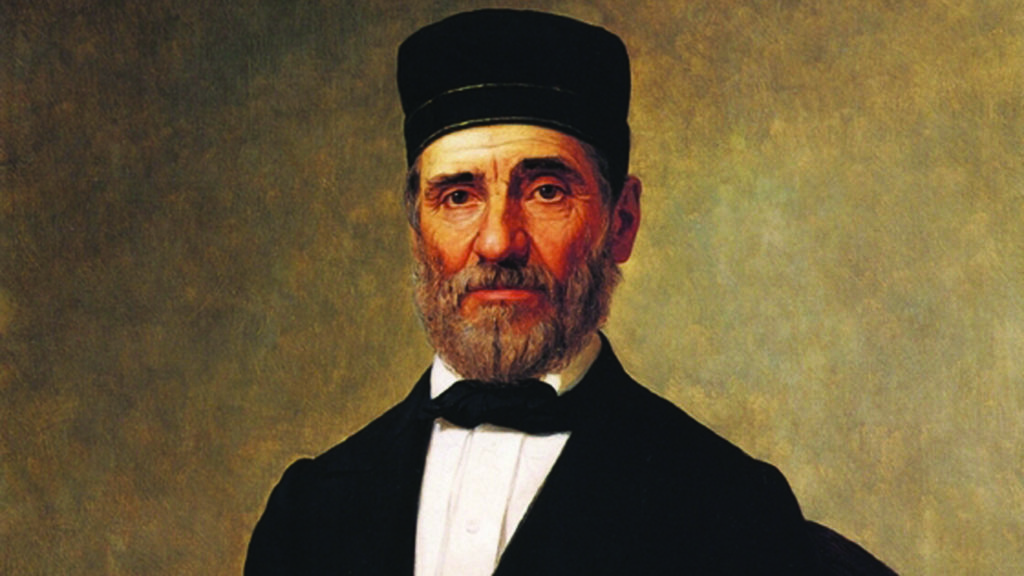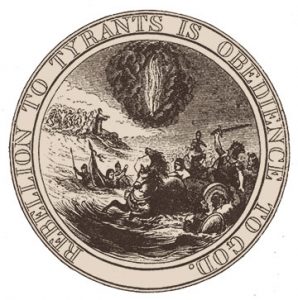Necessary Power: A Rejoinder to Jonathan Sacks
Rabbi Jonathan Sacks maintains that I misunderstood his Not in God’s Name in my review, accusing him of embracing Jewish powerlessness, and thereby questioning his credentials as a Religious Zionist. No, he argues, he is a Religious Zionist and never advocated a “disempowered, de-territorialized Judaism”; what he does advocate is a complete separation between “religion and power,” between “civic and religious authority,” between state and religion. He concludes his response to my review with a ringing declaration, “Politics divides. Religionized politics and politicized religion divide absolutely.”
One might think that our differences are merely semantic: What Rabbi Sacks rejects is political encroachment on religion (as do I), not the necessity of Jewish power. Nonetheless, I do have the sense that we differ as to the place of power within Religious Zionism, and, consequently, on the mission of Israel within the world today. Perhaps here is the place to note that while my review quoted some dozen passages from throughout Not in God’s Name, sometimes at great length, Rabbi Sacks does not respond directly to the argument of my review or to my exposition of these passages, to which I will briefly return below.
Not in God’s Name begins with a blanket repudiation of power and the nation-state, culminating in praise for the biblical Abraham precisely because he was stateless and powerless:
Abraham himself, the man revered by 2.4 billion Christians, 1.6 billion Muslims and 13 million Jews, ruled no empire, commanded no army, conquered no territory, performed no miracles and delivered no prophecies.
But this is false to the biblical narrative. God promises that he will make Abraham a great nation at the very beginning of his ministry and vouchsafes large territorial acquisitions for Abraham’s descendants: “‘Raise your eyes and look out from where you are, to the north and south, to the east and west, for I give you all the land that you see to your offspring forever’” (Gen. 13:14–15). Later, when four warlord kings, led by Chedorlaomer, attack and capture innocent non-combatants, including Abraham’s nephew Lot, Abraham leads an army of 318 men against them, routing the oppressors and rescuing the captives.
Further on in Rabbi Sacks’s book, after recording the political squabbles and internecine warfare which fragmented the armies of Judea and resulted in the destruction of the Second Temple, the fall of Betar, and the subsequent two millennia of exile, he writes “Out of darkness, though, sometimes comes light. What Jews discovered when they had lost almost everything else was that religion can survive without power.”—Yes, but just barely.
According to the famous Three Oaths of the Talmud, God admonished the people of Israel not to climb the ramparts to Jerusalem to secure Jewish independence, not to rebel against the nations of the world, and, in turn, admonished the nations not to subjugate us too harshly. Auschwitz made a mockery of this, and if any light emerged it was a hope for a Jewish homeland after two thousand years of homelessness, a summons for a Jewish State after two thousand years of statelessness, a desperate desire for an Israeli Defense Force after two thousand years of defenselessness, in short, a call for Jewish power after two thousand years of powerlessness.
And when Rabbi Sacks writes, “It is not our task” (and it was not Abraham’s task) “to conquer or convert the world or to enforce uniformity of belief. It is our task to be a blessing to the world. The use of religion for political ends is not righteousness but idolatry,” it seems to me that he oversimplifies matters. Yes, the task of Abraham and his progeny is to be a blessing to the world but that blessing is defined as commanding the future generations to embody and teach compassionate righteousness and moral justice. This is the necessary corollary to the biblical dictum that God created the human being in His image, and the major moral principle of the Bible, “You shall love your neighbor as you love yourself,” because he is like yourself (Lev. 19:18). As both Rashi and Maimonides describe him, Abraham was the consummate missionary preaching ethical monotheism wherever he went. As such, he became the model for the Jewish mission to the world. Even before the Revelation at Sinai, Israel was charged with being a kingdom of priest-teachers and a holy nation, and Isaiah, Micah, Zechariah, and Zephaniah all speak of the world accepting at least ethical monotheism at the end of days and our function as a light unto the nations. Note well, however, that none of them speak of uniformity of belief. In the words of Micah, “Though all the people walk / Each in the ways of its gods, / We will walk / In the name of the Lord our God / Forever and ever.” (4:5).
Finally, in his response, Rabbi Sacks writes “Judaism never advocated powerlessness, but it did protest attributing religious significance to power.” I would argue, on the contrary, that power is religiously significant if and only if it is used to religiously significant ends. This is why we have the concept of a milchemet mitzva, an obligatory, defensive war. It is also why our sages added the al ha-nissim prayer to commemorate the victories of the Maccabees on Hanukkah, and it is why we recite Hallel now on Yom Yerushalayim. The American founding fathers, who gave us the separation of church and state, understood this. They saw the revolution against England as an expression of Divine Service. Indeed, Benjamin Franklin’s initial draft for the Great Seal of the United States pictured the Egyptians drowning in the Reed Sea while the triumphant Hebrews rose above the turbulent waves, with the caption reading “Rebellion to tyrants is obedience to God.”
Power often corrupts and absolute power often corrupts absolutely, but the greatest corruption of all comes with the withholding of power, which grants victory to tyrants.
Rabbi Riskin’s original article can be found here.
Rabbi Sacks’s response to Rabbi Riskin can be found here.
Comments
You must log in to comment Log In
Suggested Reading
Eight Families and the 18 Percent
Whether it’s 18 percent or eight families, Gordon Tucker maintains “patience and tenaciousness change the world,” a fact that is lost when we focus on numbers.
The Banality of Evil: The Demise of a Legend
As The New York Times noted, Bettina Stangneth’s newly translated book Eichmann Before Jerusalem finally and completely undermines Hannah Arendt’s famous “Banality of Evil” thesis.

Memory and Terror
How does a survivor of an infamous hijacking piece together her history?

Minhag America
Since the founding of the United States, the American "synagoguge" has survived as a flexible institution—some would argue, too flexible.

gwhepner
POLITICIZED RELIGION AND LEADERS WHO ACT IRRESOLUTELY
Jonathan Sacks said, “Politics divides,
religionized politics and
politicized religion divide absolutely,”
but leaders who act irresolutely
endanger not just their land
but that of others and their own backsides.
[email protected]